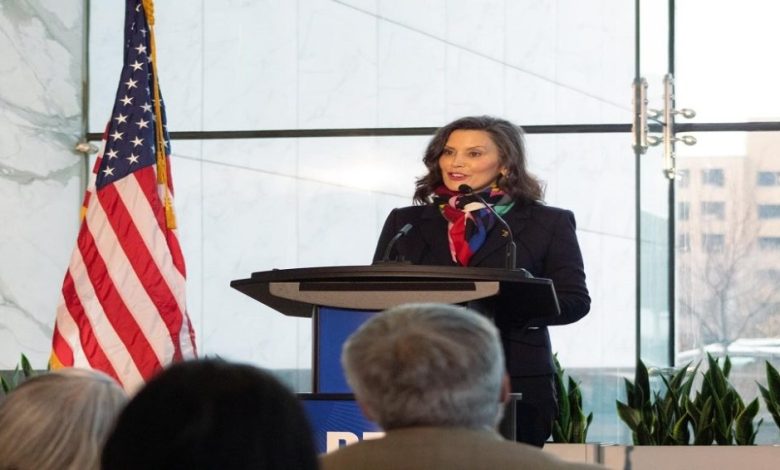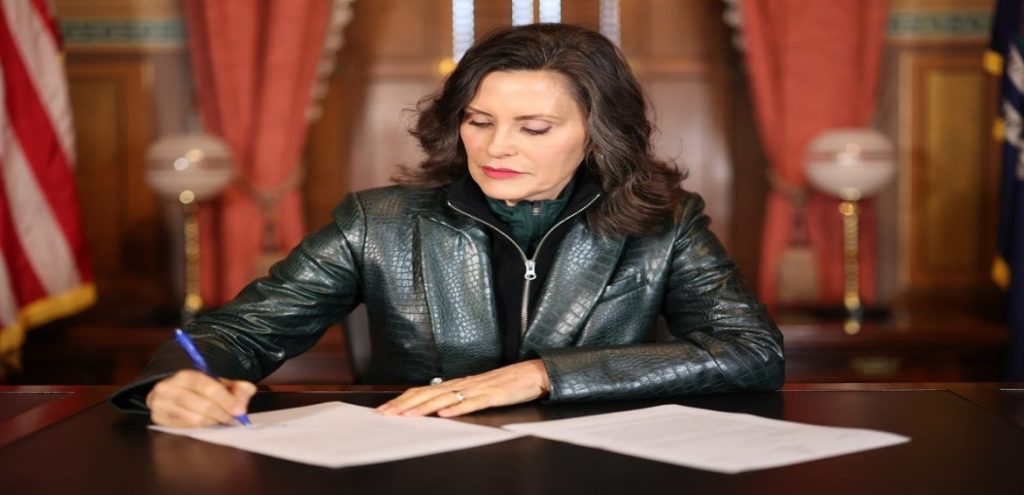Michigan Demands Millions Back from Chinese EV Battery Firm After Project Collapse
Governor Whitmer’s $2.36 Billion Electric Vehicle Battery Plant Plan Falls Apart as State Seeks Refund from Gotion

The State of Michigan is demanding the return of millions of dollars in incentives it granted to a Chinese company after the collapse of its plans to build an electric vehicle (EV) battery plant — a project long opposed by members of Congress and local residents.
Democratic Governor Gretchen Whitmer had backed the $2.36 billion factory in 2022, and state lawmakers approved nearly $175 million in incentives for the project. Now, Michigan is requiring Gotion to repay $23.6 million, accusing the company of abandoning the project.
Danielle Emerson, spokesperson for the Michigan Economic Development Corporation (MEDC), said in a statement: “Although this is not the outcome we had hoped for, we recognize the enormous responsibility we bear to the people we serve — ensuring that taxpayer dollars are spent wisely and appropriately.”
Representatives of Gotion, whose U.S. headquarters is located in California, did not respond to multiple requests for comment.

In a letter dated September 17, the State of Michigan informed Gotion that it had defaulted on its economic development grant obligations, noting that no “eligible activities” had occurred on the site for over 120 days.
According to the MEDC, the state seeks to recover $23.6 million already disbursed to purchase the land near Big Rapids, about 200 miles (322 km) northwest of Detroit. Emerson added that another $26.4 million in unspent grant funds would be returned to the state. A separate $125 million grant was also withheld due to a lack of progress on the project.
The state also cited two lawsuits related to the project that caused “a tangible negative impact” on operations — a factor contributing to Gotion’s default.
The letter stated that unless the default was resolved within 30 days, the state expected repayment of the $23.6 million. That deadline passed on October 17.
Residents of nearby Green Township strongly opposed the project, some citing environmental concerns. In 2023, local voters even recalled five elected officials who had supported bringing the plant to their area.
Automobile manufacturing remains the lifeblood of Michigan’s economy, which has been hit hard this year by tariffs imposed on the auto industry and Canada.
When the project was first announced, officials said the factory would produce cathodes and anodes — key components of EV batteries — and create over 2,000 jobs. The incentives were part of Michigan’s broader push to strengthen domestic manufacturing.
Republican Representative John Moolenaar, who represents much of rural Michigan, was among the project’s strongest critics, accusing Gotion of ties to forced labor and the Chinese Communist Party.
Moolenaar chairs the House Select Committee on China and introduced legislation barring companies like Gotion from receiving EV tax credits under President Joe Biden’s Inflation Reduction Act. Former President Donald Trump signed Moolenaar’s bill into law earlier this year.
In a press statement, Moolenaar said: “Now that the contract between Michigan and the MEDC has ended, the residents of Green Charter Township can finally move past Gotion’s lies and false promises.”



